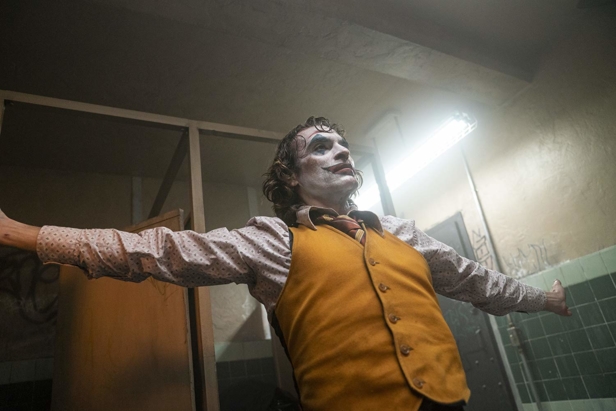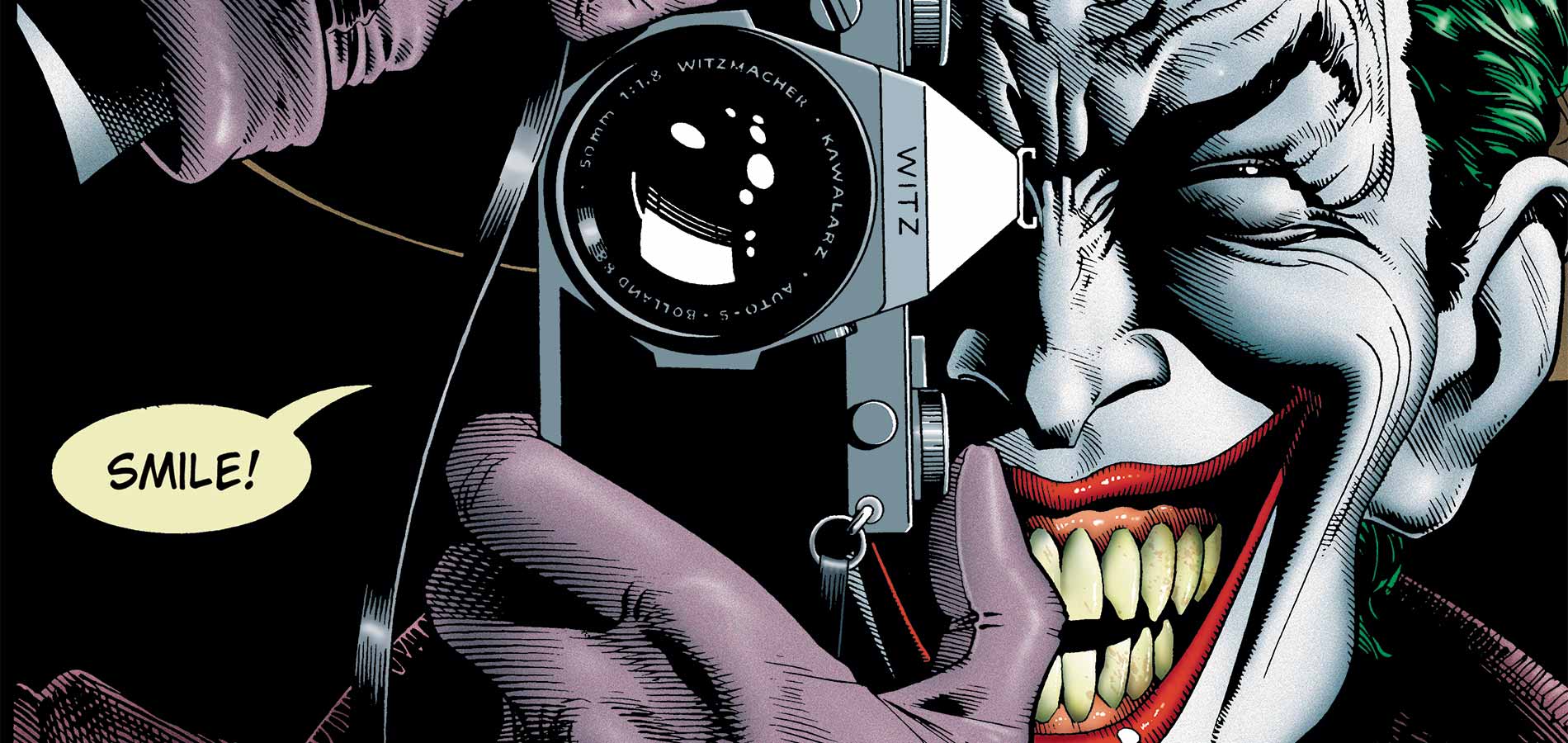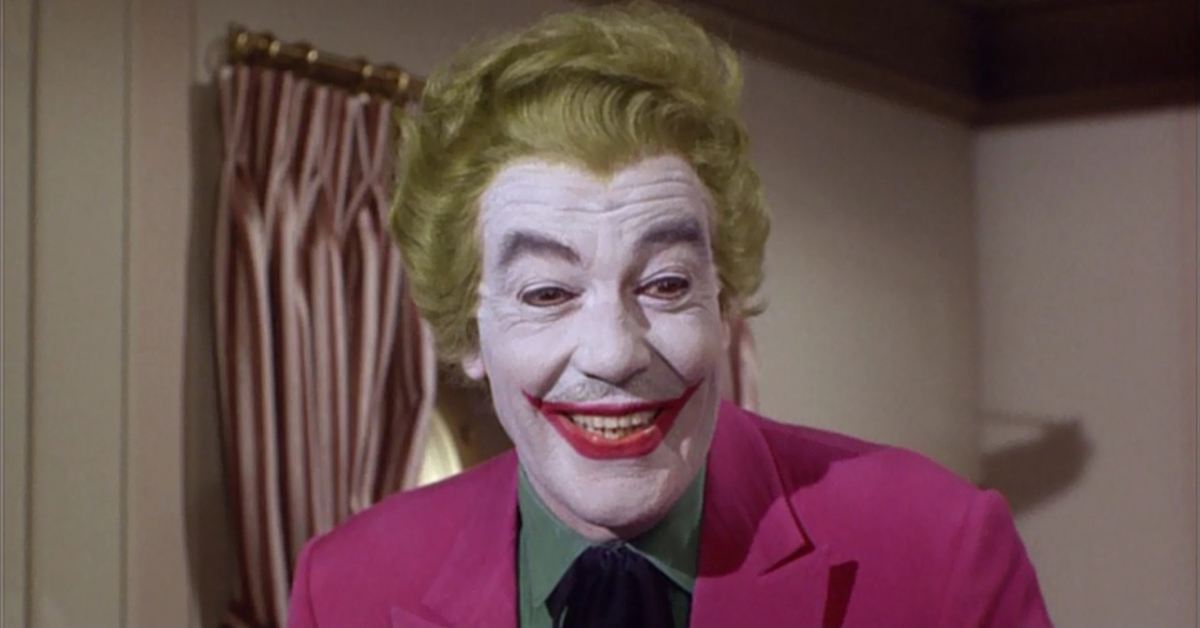What makes the Joker the Joker? What is it about this character that has made him so irresistible to audiences, readers and artists alike? We talk to actors and writers to find out more…
“Have you ever danced with the devil in the pale moonlight?” Jack Nicholson famously asked, wide-eyed, in Tim Burton’s Batman. With his ear-to-ear smile and purple suede gloves, he was just one of many that would embody Gotham’s greatest villain on our screens, and next up to the bat we have indie-darling Joaquin Phoenix. The multiple award-winner has captivated audiences with his transformative performances; ranging from famed country singers to assassins-for-hire. In what could be a career-defining moment, Phoenix will become the Clown Prince of Crime this October in Todd Phillips’ forthcoming Joker.
Originally pitched as a separate division of the current DC movie canon titled DC Black, director Todd Phillips approached Warner Bros. with the idea of a low budget character study, stripping away any CGI or high-action fight scenes. Its R rating in the U.S. already hints at a darker, more director focused effort, offering Phillips some creative freedom to avoid the studio spectaculars which have proven unsuccessful thus far. After getting the go-ahead to begin work on a script, Phillips looked to Scott Silver, writer behind The Fighter and 8 Mile, and began creating their own origin for the beloved nemesis of the caped crusader.
Next year sees the 80th anniversary of the Joker’s first comic book appearance, and he’s undoubtedly something special if, after all this time, people are still hungry for more. Troy Baker, who voiced the character in the 2013 video game Arkham Origins, says “The Joker left an indelible mark on me. I believe he is one of the greatest characters in literature, period.” After turning down the role twice, which he says wasn’t for any other reason other than “total abject fear,” Baker approached the role “trepidatiously, and shrink-wrapped in insecurity.” Following the footsteps of Mark Hamill, who he credits as being the one to really show what the character could be, was a terrifying thought. “It wasn’t until I was standing in London at the launch event and there was no Mark Hamill or Kevin Conroy waiting in the wings, I was like ‘Oh shit, we’re actually gonna do this.’”
While every incarnation of the Joker on our screens has taken some creative liberties, there are some seminal comic book stories that stand out as frequent inspiration. Alan Moore and Brian Bolland’s 1988 standalone The Killing Joke is regarded as one of the most important works surrounding the villain – for reasons good and bad. Featuring the iconic “One bad day…” monologue, of which Troy Baker’s recital at the 2013 New York Comic-Con has over two million views on YouTube, the graphic novel sees the Joker escape prison and build his own fairground with a few dark attractions in mind. “If you look at [The Killing Joke] purely as a piece of literature, in my opinion, it’s flawless. What they did with it is poetry.” He insists, “The tunnel of love monologue is a perfect cross section of the Joker’s worldview. ‘Madness is the emergency exit and I am here to help liberate you.’ He thinks everybody else has got it wrong, he’s experienced pain and loss and he’s found the answer. Like people find Jesus, he found madness and he’s like ‘it has set me free and I want to set you free.’” The Joker truly believes he is the hero of his story, and Baker thinks all the best villains do.
Fans were hesitant to see what brave soul would step into Hamill’s shoes following the success of Arkham City and Arkham Asylum, and that New York Comic-Con panel was Baker’s chance to prove himself as a worthy successor. “I never understood the concept of eternity until I said that first line and waited for any kind of response. I thought ‘fuck it, at least I’m gonna give this thing the best that I can.’ It wasn’t until the first person cheered that I thought this actually might work.” To his relief, the fans welcomed him with open arms, with blogs blowing up the following day citing how ‘Troy Baker killed it’ as the next Joker. “It’s a cool moment to watch on YouTube,” he confesses, “but it’s one of my greatest memories as an actor.”
The Killing Joke begins with an origin story to pull at the heartstrings; with black and white pages of flashbacks to when the agent of chaos looked like any regular guy. He was a struggling comedian, coming home to his pregnant wife riddled with guilt that he’d let her down and couldn’t make rent once more. As the story progresses he talks of having to prove himself as a husband and father. This is interspersed with present-day Joker committing horrific deeds, with implications of sexual assault concerning Detective Jim Gordon and his daughter Barbara. This story is widely considered tricky and problematic amongst fans, with writer Alan Moore spinning the arrow to point the Joker in a truly evil direction. After this moment, any sympathy for the devil a reader might have disappears – surely? It’s still open to speculation as to whether this is the case with Joaquin Phoenix’s Arthur Fleck. In Joker, Fleck is also a struggling comedian who, rather than an expecting wife, comes home to his elderly mother. Are we again to be made to feel sorry for a sadistic killer?
Anthony Ingruber, who voiced the Joker/John Doe in the 2018 Batman: The Telltale Series, argues that the Joker shouldn’t be void of sympathy. “Obviously Nicholson’s was a gangster and Ledger’s was just out to hurt people. But in John Doe, and what we’ve seen so far of Joaquin, we see the Joker as a victim of circumstance.” He continues, “He has his own mental struggles and issues with anger and control, and I think that can resonate with people.” Ernie Altbacker, screenwriter behind Batman: Hush, suggests that it’s a tricky debate. “Humanising him in Joker, I think, is a perfectly valid storytelling thing.” He continues, “But sometimes, like with horror masters such as Stephen King, it does make you feel icky when you’re agreeing with or feeling sympathy for a person who is going to become horrifically evil.” He argues that making the Joker a victim of circumstance simply makes for a compelling narrative, “It is such an interesting story, not one that you want to go on personally of course, but definitely one that’s gripping to watch.”
In the 2014 Endgame series of comics, author Scott Snyder wrote that the Joker believes he is serving Batman; challenging him and making him better. In the Joker’s words: they’re friends. He says to the Dark Knight, “That whole game I set up for you, it was done out of care… it was meant to be a comedy!” This parallel can be found in the trailer for Todd Phillips’ latest adaptation, where Arthur Fleck declares, “I always thought my life was a tragedy, turns out it’s a comedy.” The Joker seems adamant to label his life one genre or another, it’s all one big show to him, and the show must go on. 2015’s Batman Issue #40 even suggested the Joker might be an immortal demon who has been around since the beginning of time. So for a villain that can maybe never die, the show truly does do just that.
Ingruber suggests that what makes the character so endlessly intriguing is the fact that he’s been reinvented so many times. “When you look at the Golden age, he was sort of seen as this lovable trickster who didn’t actually hurt anybody, but in his first comic appearance he was a straight-up murderer.” He continues, “They played him softer in the 60s with Cesar Romero [In the 1966 Batman TV series] for the kids, and then in the 80s with Jack Nicholson they really explored the more sinister side of him.” Ingruber says that he believes Frank Miller’s The Dark Knight Returns to be the greatest Joker comic because of his relationship with Batman, “He reinvented the whole thing.” He insists, “He took out all the gadgets and made it a lot more of a psychological exploration into both Batman and the Joker”
Many fans would argue that without Batman, the Joker doesn’t exist. Inrguber agrees, “It’s like a symbiote, he’s like a dormant thing and only comes out of his coma [In Miller’s The Dark Knight Returns] when Batman picks up the suit again.” This codependent relationship is a sentiment explored in Ingruber’s John Doe. In the Telltale Series, he begins as an Arkham Asylum patient who looks up to Bruce Wayne. In the game, Alfred warns Bruce, “From the start, John has hung on your every word. Your influence is everywhere in him, being the part of you that is darkest.” It’s true that in all mediums we have yet to see the Joker alone, perhaps validating the idea that there is no Joker without Batman. Unless Todd Phillips throws us some curveballs, this might not be the case for the very first time
In The Killing Joke, a young Joker turns to crime in an effort to keep his family from the streets. It is here he first becomes the Red Hood, a famed Gotham criminal before the Joker ever was. So far no cinematic adaptation has explored this origin. The Fox series Gotham used the Red Hood and his gang for a season-long arc, but never made any connection to the Joker himself. Unfortunately, due to licensing, Gotham has never explicitly used the Joker at all. Cameron Monaghan plays Jerome (and later in the series his twin brother Jeremiah), who audiences have always known is a lowkey interpretation of the villain. Monaghan’s Cheshire Cat smile at the beginning of the very first season expertly mimicked that of the comics, and his performance has been lauded as great as that of Nicholson or Ledger. But Warner Bros. simply wished to reserve the big ‘J’ name for the film canon. This might be a crying shame, but if it leaves the path open for Phoenix to bring something completely fresh, perhaps it will have been worth it.
“We have to let him belong to a future generation,” says Baker. With the recent casting of Robert Pattinson as the Batman in Matt Reeves’ upcoming film, he firmly believes “whoever we have that next picks up the cowl or the clown shoes, we all understand that there is almost a century of legacy built into these characters, and they’re going to exist forever – because they’re just that good.” And he’s certainly excited to see what Phoenix brings to the table. “You can see that the character is built from the inside out and it’s bursting out of him.” Arguing that Joker is such a delectable role for an actor because there is so much room to play, he explains, “You can be incredibly indulgent, and everybody likes to go a little crazy and everybody likes to be given permission to go a little crazy. But the other beautiful exercise is when the Joker remains mysterious.” He laments that the best version of the character is when there is no origin. “There is no explanation or rhyme and reason, he’s almost this eternal being that exists outside of logic. He just is.” Baker even goes as far to suggest that the gender of the character is irrelevant, “The Joker can be male, female, or any age and it doesn’t matter, because [the character] is built from the inside out. It’s almost better than playing Richard III or King Lear, and restraint is definitely my favourite version.”
Even after 80 years, every iteration of the Joker’s humble beginnings reveal a man who just can’t catch a break, driven completely mad by the hand that life has dealt him and the choices he made along the way. Sympathy is lost when he becomes a sadistic serial killer, but the most memorable and iconic of his stories are the ones where he’s just pure evil and loving it. After all, laughter is the best medicine. With Phillips and Phoenix crafting their own past for the Joker, or Arthur Fleck as we will know him to begin with, we’ll have yet another hysterical Gothamite to add to an ever-expanding family tree. One that appears to be an outcast, endlessly tormented by society, forced to become what we know is inevitable. However he gets there, we know it will be one heck of a ride – to echo the Jokers own words in The Killing Joke, “If I’m going to have a past, I prefer it to be multiple choice!”
This article first appeared in SciFiNow issue 163.
Batman: Hush, Batman: Arkham Origins, Batman – The Motion Picture Anthology and The Dark Knight are available now from Warner Bros. Get all the latest superhero news with every issue of SciFiNow.




